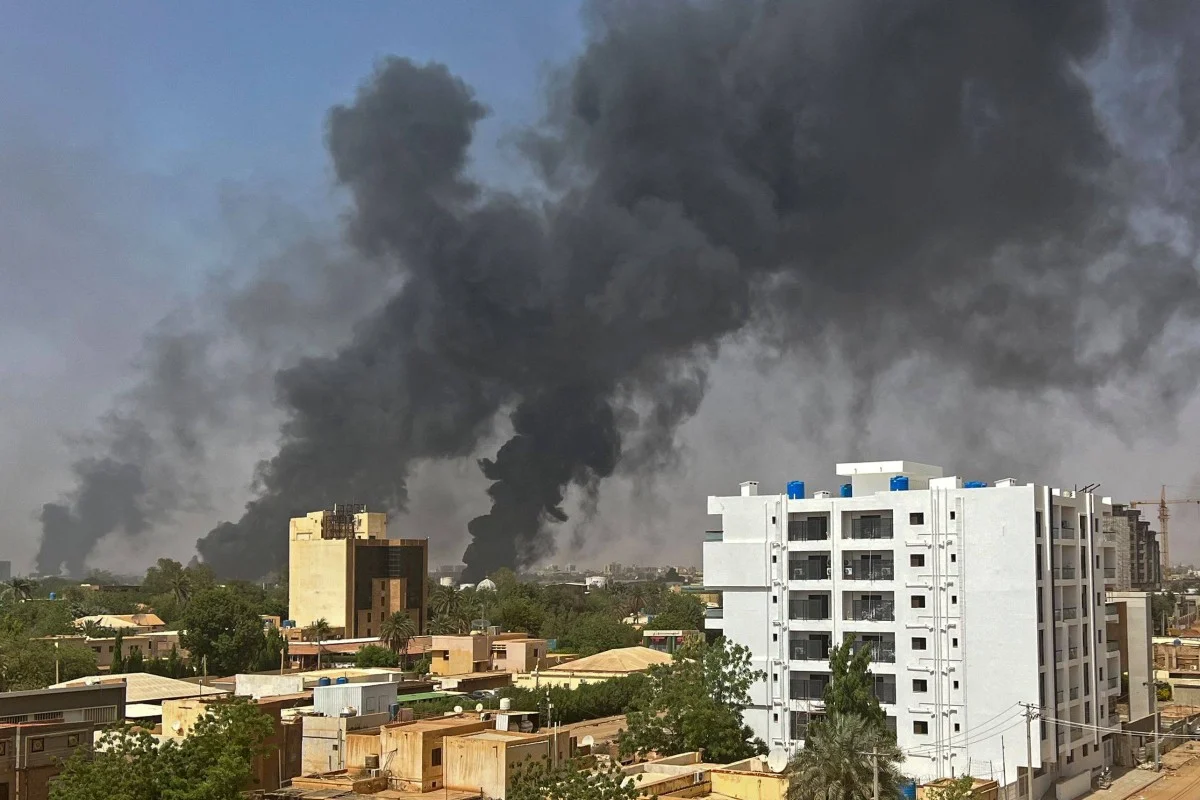The Spark: A Military Coup Amid Political Unrest
On October 25th, 2022, a military coup took place in Sudan, plunging the country into chaos. Prime Minister Abdalla Hamdok was arrested, and General Abdel Fattah al-Burhan declared a state of emergency. This development came after months of political unrest, with widespread protests demanding a transition to civilian rule.
The Players: Army Rivals Vying for Control
General Abdel Fattah al-Burhan
General Abdel Fattah al-Burhan, the head of Sudan’s ruling Sovereign Council, has been a key figure in the power struggle. He declared a state of emergency following the coup and dissolved the transitional government.
Lieutenant General Mohamed Hamdan Dagalo
Lieutenant General Mohamed Hamdan Dagalo, also known as “Hemedti,” is the Sovereign Council’s deputy head and the Rapid Support Forces (RSF) commander. The RSF, a powerful paramilitary group, has played a significant role in the conflict.
Prime Minister Abdalla Hamdok
Prime Minister Abdalla Hamdok, a well-respected economist, led the country’s transitional government before his arrest. He was later released and reinstated as Prime Minister under a new political agreement.
The Conflict: A Deadly Struggle for Supremacy
As tensions mounted between the military factions, violent clashes erupted in several parts of Sudan. Dozens of people were killed, and hundreds more were injured as the Sudanese Armed Forces (SAF) and the RSF vied for control.
The Capital: A Hotspot for Conflict
Khartoum, Sudan’s capital, became the epicenter of the deadly confrontations. Reports of gunfire, artillery exchanges, and street battles emerged from various neighborhoods as the rival forces struggled for dominance.
The Human Cost: Lives Lost Amid the Chaos
The fighting between military factions in Sudan has resulted in a tragic loss of life. Civilians have been caught in the crossfire, with dozens killed and countless others wounded. The instability has also forced thousands to flee their homes for safety.
The Humanitarian Crisis: A Nation on the Brink
Sudan’s power struggle has exacerbated an already dire humanitarian crisis. The violence has disrupted the delivery of essential supplies, and many people now face shortages of food, water, and medical care.
The International Response: Calls for Peace and Stability
Global leaders have quickly condemned the violence in Sudan, urging all parties to seek a peaceful resolution. The United Nations, African Union, and other international organizations have called for a cessation of hostilities and a return to the negotiating table.
The Road Ahead: Prospects for Peace and Democracy
The situation in Sudan remains volatile, with no clear path to a peaceful resolution. As military factions continue to clash, the hope for a stable, democratic future hangs in the balance. It will take concerted efforts from both domestic and international actors to bring about lasting peace and the transition to civilian rule that the Sudanese desperately seek.
The Economic Impact: A Nation Grappling with Financial Struggles
Sudan’s ongoing conflict has significantly affected the country’s economy. As the military factions battle for control, businesses have been disrupted, and essential infrastructure has been damaged. The nation’s currency, the Sudanese pound, has weakened, causing skyrocketing inflation and worsening an already precarious financial situation.
International Sanctions: A Barrier to Economic Recovery
The political instability in Sudan has also led to international sanctions being imposed on the country. These sanctions have limited access to crucial financial resources and hampered efforts to revive the economy. With the threat of further economic decline, the Sudanese people continue to bear the brunt of the conflict’s consequences.
The Role of Social Media: A Platform for Mobilization and Information
Amid the crisis, social media has played a vital role in disseminating information and mobilizing citizens. Platforms like Twitter and Facebook have been used by activists, journalists, and ordinary citizens to share updates, document human rights abuses, and coordinate protests.
The Challenges: Misinformation and Censorship
However, the use of social media in the Sudanese conflict has been challenging. Misinformation and propaganda have spread rapidly, making it difficult for users to discern the truth. Furthermore, the government has been accused of implementing internet shutdowns and censorship measures to control the flow of information and stifle dissent.
The Role of Regional Powers: Influencing the Outcome
Regional powers have played a significant role in shaping the events in Sudan. Countries like Egypt, Saudi Arabia, and the United Arab Emirates have provided financial and military support to various factions, often with conflicting interests. These external influences have complicated the situation on the ground and added another layer of complexity to the power struggle.
Rebuilding Trust: A Key to Long-term Stability
For Sudan to achieve lasting peace and stability, trust must be rebuilt between the military factions, the civilian government, and the Sudanese people. This will require meaningful dialogue, transparency, and accountability from all parties involved. Only then can the nation embark on a peaceful, democratic future.
Conclusion: The Urgency of Finding a Solution
The ongoing power struggle in Sudan has had devastating consequences for the nation and its people. As the situation unfolds, all parties must work towards a peaceful resolution that respects the will of the Sudanese people and lays the foundation for a stable, democratic future. The international community must remain vigilant and support Sudan’s journey towards peace and prosperity.
